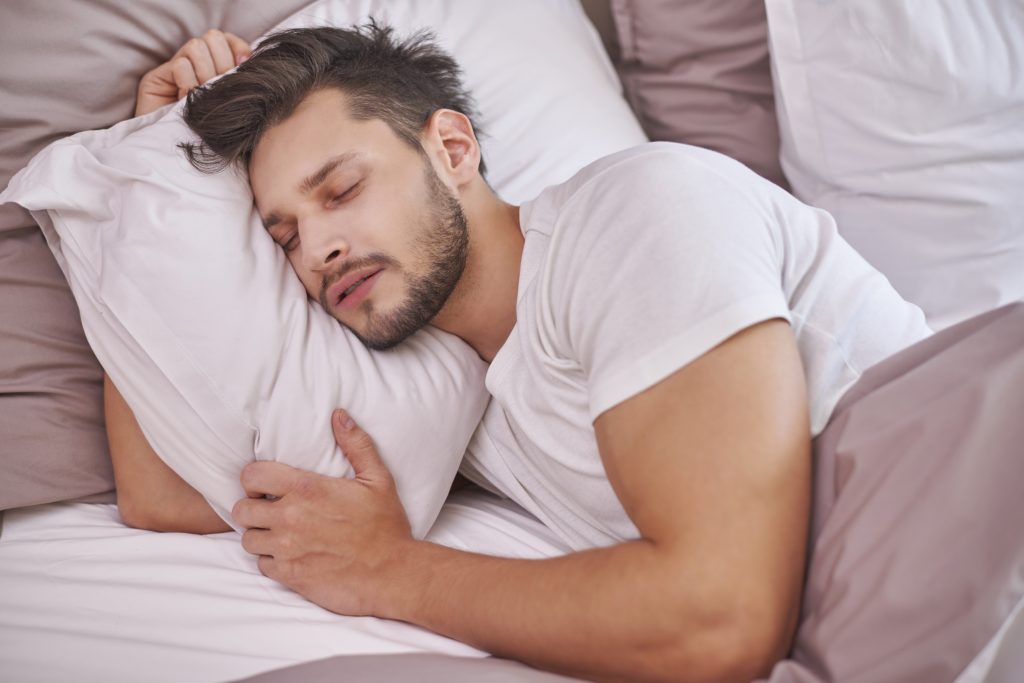Do you often find yourself struggling to get enough sleep? You’re not alone. According to the Centers for Disease Control and Prevention (CDC), one in three adults in the United States do not get enough sleep. While it may be tempting to sacrifice sleep in order to get more done during the day, the truth is that sleep is essential for optimal health. In this blog post, we’ll explore why sleep is your secret weapon for optimal health and well-being and how you can make sure you’re getting enough of it.
The Importance of Sleep

Sleep is essential for many different aspects of our health, from physical health to cognitive functioning. Here are just a few reasons why sleep is so important:
Physical Health: Sleep is essential for maintaining physical health. During sleep, our bodies repair and regenerate tissues, including muscles and bones. Sleep also plays a crucial role in the functioning of the immune system, helping to fight off infections and diseases.
Cognitive Functioning: Sleep is also critical for cognitive functioning, including memory, concentration, and decision-making. Lack of sleep can impair these functions and make it more difficult to perform tasks that require attention and focus.
Mood: Sleep plays a crucial role in regulating mood. Lack of sleep can lead to irritability, anxiety, and depression.
The Science of Sleep

So what happens when we sleep? Sleep occurs in cycles, with each cycle lasting between 90-120 minutes. There are two main types of sleep: rapid eye movement (REM) sleep and non-rapid eye movement (NREM) sleep.
During NREM sleep, the body repairs and regenerates tissues. This type of sleep is essential for physical health, including the immune system, while REM sleep is critical for cognitive functioning, including memory consolidation and learning.
The Benefits of Sleep
Getting enough sleep can have numerous benefits for overall health and wellbeing. Here are just a few:
Improved Mood: Getting enough sleep can help regulate mood and reduce symptoms of anxiety and depression.
Better Cognitive Functioning: Sleep is essential for cognitive functioning, including memory, concentration, and decision-making.
Improved Physical Health: Sleep is essential for physical health, including maintaining a healthy immune system, regulating hormones, and repairing tissues.
Weight Management: Lack of sleep has been linked to weight gain, as it can lead to increased appetite and decreased metabolism.
How Much Sleep Do You Need?

The amount of sleep each person needs varies depending on factors such as age, activity level, and overall health. According to the National Sleep Foundation, adults aged 18-64 should aim for 7-9 hours of sleep per night, while those aged 65 and older should aim for 7-8 hours per night.
Tips for Getting Better Sleep
If you’re struggling to get enough sleep, there are several things you can do to improve the quality and quantity of your sleep:
Stick to a Regular Sleep Schedule: Try to go to bed and wake up at the same time every day, even on weekends.
Create a Relaxing Sleep Environment: Keep your bedroom cool, quiet, and dark, and remove any distractions such as electronic devices.
Avoid Caffeine and Alcohol: Caffeine and alcohol can interfere with sleep quality and should be avoided, especially in the evening.
Exercise Regularly: Regular exercise can improve sleep quality and duration, as long as it’s done earlier in the day.
Practice Relaxation Techniques: Techniques such as deep breathing, meditation, and yoga can help promote relaxation and improve sleep quality.
The Bottom Line

Sleep is an essential component of overall health and wellbeing. It’s important to make sure you’re getting enough sleep.
Relationship between good sleep and increasing the level of physical and mental health
There is scientific evidence showing the relationship between good sleep and increasing the level of physical and mental health. Here are a few examples:
Physical Health:
A study published in the Journal of Sleep Research found that people who slept for 7-9 hours per night had a lower risk of cardiovascular disease than those who slept for less than 7 hours or more than 9 hours: https://pubmed.ncbi.nlm.nih.gov/29603217/
A study published in the American Journal of Epidemiology found that short sleep duration was associated with a higher risk of developing diabetes: https://pubmed.ncbi.nlm.nih.gov/17928305/
A study published in the journal Obesity found that people who slept for 7-9 hours per night had a lower risk of obesity than those who slept for less than 7 hours or more than 9 hours: https://pubmed.ncbi.nlm.nih.gov/18551114/

Mental Health:
A study published in the Journal of Sleep Research found that people who slept for 7-9 hours per night had better mental well-being than those who slept for less than 7 hours or more than 9 hours: https://pubmed.ncbi.nlm.nih.gov/30629780/
A study published in the Journal of Psychiatric Research found that poor sleep quality was associated with an increased risk of developing anxiety and depression: https://pubmed.ncbi.nlm.nih.gov/25139099/
A study published in the Journal of Sleep Research found that people who had insomnia were more likely to have a lower quality of life than those who did not have insomnia: https://pubmed.ncbi.nlm.nih.gov/27029763/
These studies and others like them provide strong evidence that good sleep is linked to both physical and mental health.




